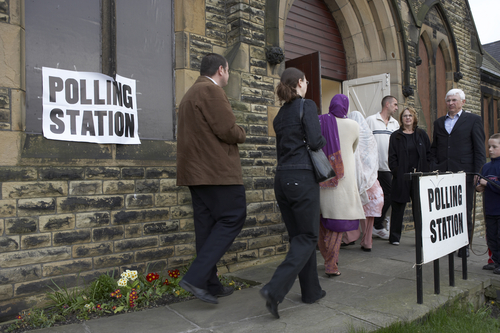Robin Hayden is Senior Public Affairs Officer at the RTPI
 With local elections taking place on May 5th for seats across England, Wales and Scotland (as well as Stormont elections in Northern Ireland), it’s a good moment to pause and consider the relationship between the local and the national. It is essential that planning is fully considered from both these angles, as an issue that shapes the efficiency, equality and productivity of our country, but equally impacts how every resident engages with their local area.
With local elections taking place on May 5th for seats across England, Wales and Scotland (as well as Stormont elections in Northern Ireland), it’s a good moment to pause and consider the relationship between the local and the national. It is essential that planning is fully considered from both these angles, as an issue that shapes the efficiency, equality and productivity of our country, but equally impacts how every resident engages with their local area.
The role of the RTPI in national conversations is to ensure that planners have a seat in these conversations, while harnessing the experience of thousands of planners to share a full understanding of how any proposals play out in practice.
One recent example of this is the work we are doing on Biodiversity Net Gain (BNG), a policy which is to be welcomed but comes with burdens that must be fully accounted for. What we do on a national level greatly affects the local and we must ensure we give councillors the tools and framework to succeed. Likewise changes to the infrastructure levy must be considered not just from the perspective of national ambitions, but how they will work on a local level. We are in the process of ongoing engagement with DEFRA and DLUHC to help make national policy changes a success on the local level.
Working with the Planning for the Future reforms in England showed just how crucial local political issues are in deciding national political questions. For MPs, reforms to our planning system were as much a constituency issue as a Westminster one. This demonstrates why any public affairs work must focus on both levels. Being a voice to both audiences, but providing tailored information, is at the core of this engagement.
As part of this thinking, the RTPI launched the Politicians in Planning (PiPN) network last year. The network aims to bring together councillors working in the area and bridge the gap with planners. The network has grown to over 500 members, although there will of course be a period of disruption as seats change hands. Membership is free and members have benefitted from events, a regular newsletter, Planning Aid England (PAE) webinars and more. At LGA conference in Harrow this summer, the RTPI will also be hosting events for PiPN members in attendance, so if you plan to be there and want to get your ticket, make sure you are subscribed.
Building good working relationships between local politicians and planners is a support to the profession as it makes the process easier when all parties understand their role, and the most effective way to accomplish it. Understanding of the other party is a crucial first step, followed by awareness of what their unique roles are, and then how best to achieve them. This is the prevailing goal of the PiPN network.
Getting the RTPI messages to local politicians is crucial. The RTPI nations have prepared manifesto asks, which will give newly elected councillors an idea of priorities in the planning space. Welcoming new councillors to their roles and ensuring they have access to high-quality information about planning will be crucial to ensuring their success. Many local councils have taken innovative approaches to planning, or even just through trial and error figured out what works. These politicians in planning have the know-how to help ensure their less experienced colleagues can be equally successful.
So, on the eve (plus one week) of local elections, we can’t forget that all politics is local. That must be the goal of RTPI political engagement, to make things work from both angles.
Ps: don’t forget to vote!


